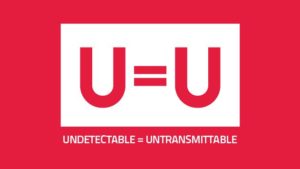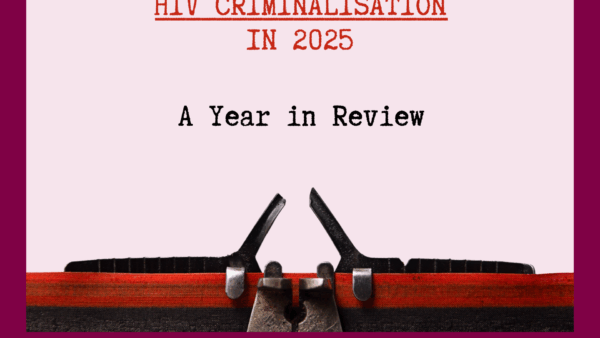A recent study examining current HIV criminalization laws found a level of bias due to assumptions about the criminal intent and violent nature of HIV-positive people, according to a study published in the journal Medicine.
Currently, states can hold a person liable if they know they are HIV-positive and commit a sex crime that has the possibility of transmission. An HIV-positive person can also face criminal charges if they demonstrate intent to transmit the virus, whether or not transmission actually occurred. HIV criminalization laws were created during the era prior to antiretroviral therapy when the risk for transmission was extremely high. Although HIV treatment and prevention has advanced, these laws have not evolved, the study found. However, the Department of Justice recommended that states modernize laws to reflect the low risk of HIV transmission from biting, spitting, throwing body fluids, insertive/receptive oral intercourse, and antiretroviral therapy.
The current study examined data from males aged 20 to 49-years-old from 1999 to 2012. The researchers sought to determine whether a national state-specific survey overstates estimates of HIV is due to the exclusion of inmates and whether or not HIV-positive inmates are more violent than HIV-negative inmates, thus creating bias. Researchers gathered data from the National Health and Nutrition Examination Survey (NHANES). The data gathered by the surveys included demographic, dietary, and health-related markers of a representative sample of 5000 per year. Data was also collected from the Survey of Inmates in State, Federal, and Local custody from 1997 to 2004. Data from the Survey of Inmates in Local Jails was collected in 1996 and 2002. In both surveys, inmates were asked whether or not they had been tested for HIV and what the results of the test were.
Researchers found approximately 65% of the inmates were non-Hispanic Whites. The data from NHANES showed non-Hispanic Whites declined almost 5% over the period of time, while the non-Hispanic Other group doubled. In 1999, about 41.4% of inmates had a high school diploma, which increased to about 55.7% by 2012. Researchers said this could be due to the fact that inmates with a high school diploma decreased from 47.4% in 1999 to 35.4% in 2012. Highly advantaged respondents increased their responsiveness for NHANES, with about 62.1% of respondents having some college education in 2012. Researchers state that the shift in educational distribution between the 2 surveys could be indicative of HIV prevalence being concealed and distorted when institutions concentrate on disadvantage and do not include inmates in the samples. Inmates with HIV increased to 3.3% in 2012, while lab work by NHANES showed that HIV prevalence went down to .42% in 2012. In 1999, 14.5% of HIV-positive inmates were incarcerated for violent crimes and 22.1% of non-HIV infected were incarcerated for those crimes. In 2012, HIV-positive inmates incarcerated for violent crimes was 8.1% lower than the overall population. Researchers said that HIV-positive inmates were more likely to be incarcerated for drug and property crimes.
The data indicated that HIV-positive inmates are much less violent than HIV-negative inmates. Due to poverty and low levels of education, inmates are typically excluded in national-based surveys. Researchers said a bias is present due to this exclusion, which indicates a need for a reexamination of HIV prevalence rates.
Researchers said that HIV criminalization laws are very presumptuous about HIV-positive people due to the laws being created over 30 years ago when there was quite a bit of fear and mystery surrounding the disease. To make these surveys more representative, the study concluded social scientists and legislators need to reassess the evidence that claims HIV-positive individuals are dangerous and have harmful intentions.
Originally published in Specialty Pharmacy Times
Study abstract available here









